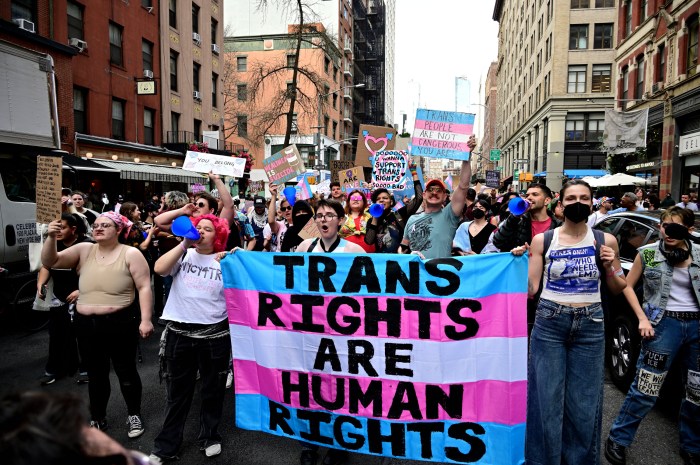By Ronda Kaysen
Volume 18 • Issue 4 | JUNE 17-23, 20
Job office faces unemployment
An unlikely contingent of New Yorkers might soon join the city’s unemployment rolls: the unemployment insurance employees at the New York City Telephone Claims Center.
The New York State Department of Labor has decided to shutter its 345 Hudson St. office and relocate the 256 jobs to two locations upstate. The office’s 49 hourly employees were given their walking papers last April and the remaining fulltime staff will be phased out by fall 2006.
“It’s ironic. Never in the 12 years that I’ve been working there, have I considered the possibility of actually being unemployed,” said Vanessa Castillo, a Spanish language claims reviewer with two children.
Fulltime employees have been offered the option of relocating to Troy or Endicott, New York, an offer many will likely decline.
“The move is an impossibility for me,” said Helen Esposito, a claims reviewer who has been working for the department since 1993. “My community ties are too strong. I’m my father’s primary caregiver. I’m his medical care proxy. I can’t do that 300 miles away.”
Esposito also has a bi-racial son whom she worries might not adjust well to life in Troy or Endicott. “I’m not moving a 15-year-old child and ripping him away from the life he’s only known and the only friends he’s ever had. He needs to be around his culture and his people.”
If the employees choose to stay in the city, the department will attempt to place them in new state jobs, although there is no guarantee that the new job will at the same salary or rank — or even in the city. Some employees have been offered reassignments in other upstate locations, such as Albany.
“People don’t go to school and, especially in social service, rise to a the ladder and all of a sudden someone says to you ‘we’ll help you keep your job, but it will have to go down,’” said Evarist Nicholas, a claims reviewer who has been working for the State for 27 years and the Dept. of Labor for 10 years. Nicholas is four years from retirement.
The Labor Dept. attributes the center’s closing to a drop in the city’s unemployment rolls. “As New York’s economy continues to improve, the department is experiencing reduced Unemployment Insurance claims workloads,” the Dept. explained in an April 13 statement. “This decline in workload has resulted in a reduction in federal funding to levels that no longer allow the department to maintain existing operations and infrastructure.”
New Yorkers will also suffer when the center is relocated, center employees insist. The Hudson St. staff is a diverse group, comprised primarily of blacks, Latinos, Asians and other ethnicities that speak a cacophony of languages and are equipped to deal with the city’s eclectic population. Upstate, the office will likely rely on an outside translating service to assist non-English speaking clients.
“If I call somebody in Albany, what are the chances that I can find somebody who speaks Chinese? Russian? Creole?” Gordon Stack, a claims reviewer who has worked for the department for 15 years, told Downtown Express at a June 15 rally to keep the jobs in Manhattan. Stack worries that non-English speaking callers, unable to communicate with the staff, will not file claims.
“The state keeps contending that this is about mortar and bricks and people,” said Esposito, a Spanish-speaking employee. “But we understand the intricacies of the city. A person upstate doesn’t understand how the city works. You’ve got different nationalities and races here. We know what it is; we know how people speak. It’s not a basis of processing the law, there’s a lot more involved with it than that.”
The Public Employees Federation announced plans this week to sue the Labor Dept. for racial discrimination.
The Dept. did not return repeated calls for comment for this story.
On Wednesday, 150 center employees and other union workers gathered at City Hall Park for a rally to voice their dismay. Waving yellow plastic clappers that read, “Don’t hang up! Stop the move,” workers chanted in the summer heat, “Hell no! We won’t go!”
Nicholas, an African American woman, worries the jobs that are leaving — skilled jobs filled by minorities – will never return to the city. “You say you’re revitalizing Lower Manhattan, how are you revitalizing when you’re taking your jobs out?”
WWW Downtown Express

































